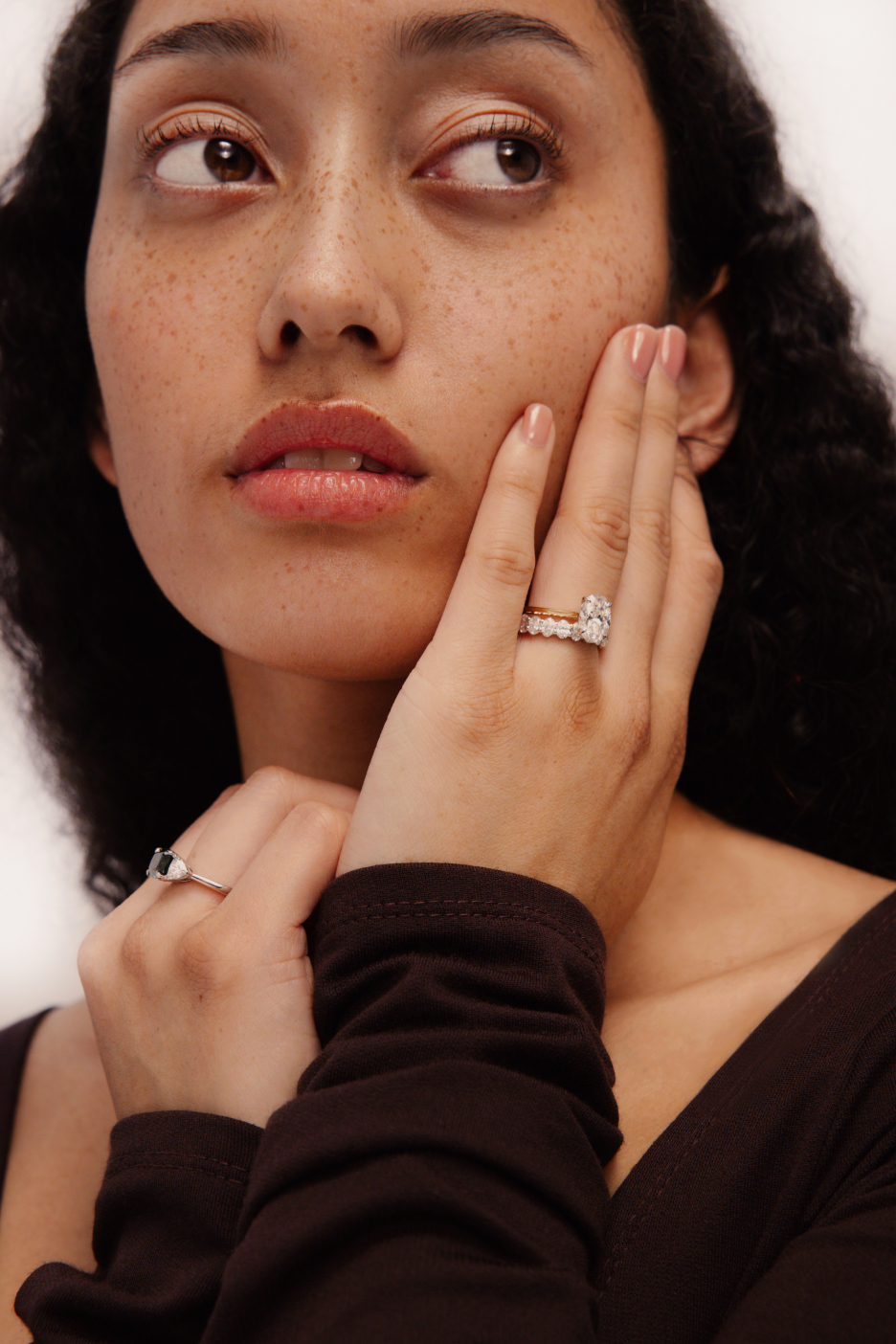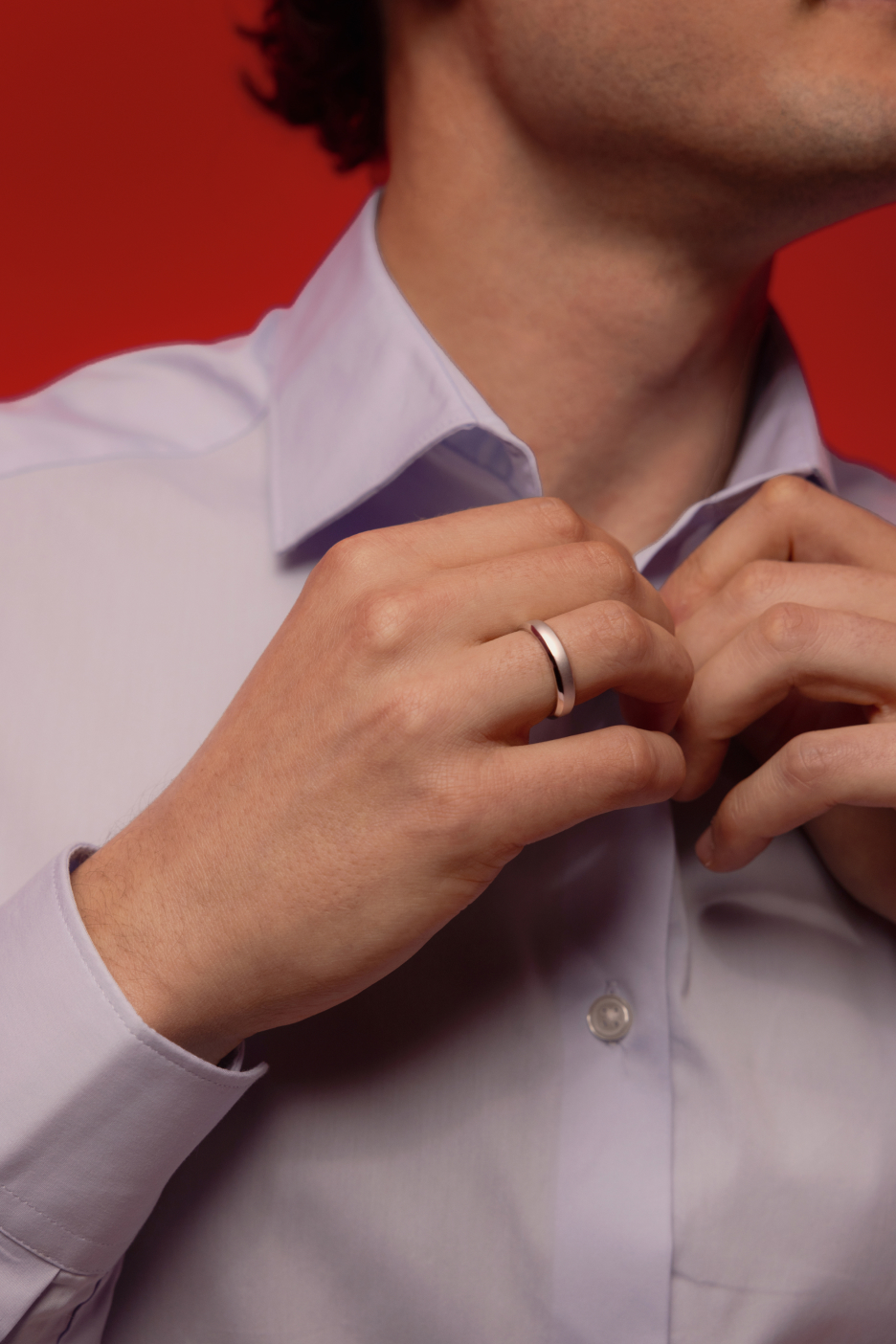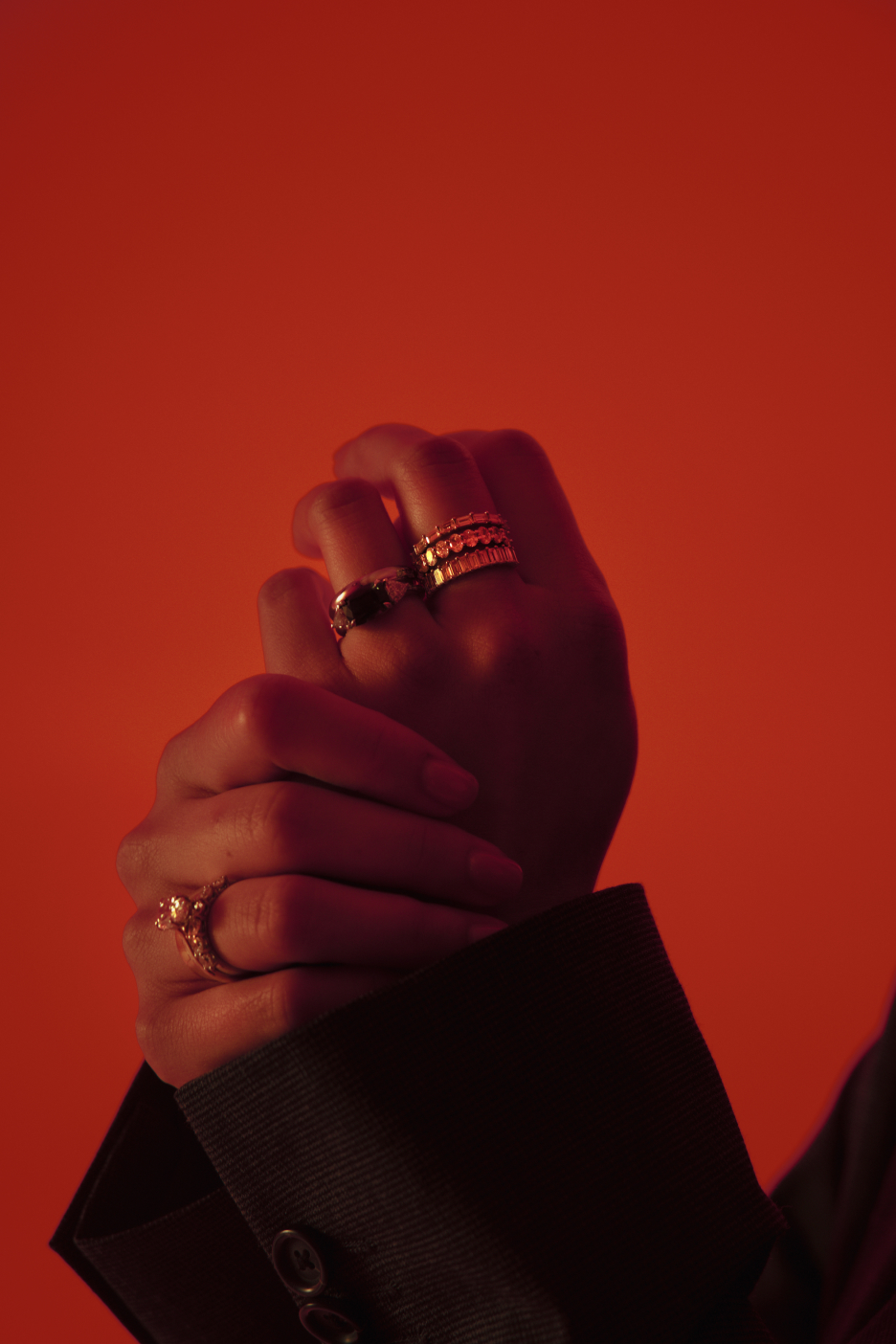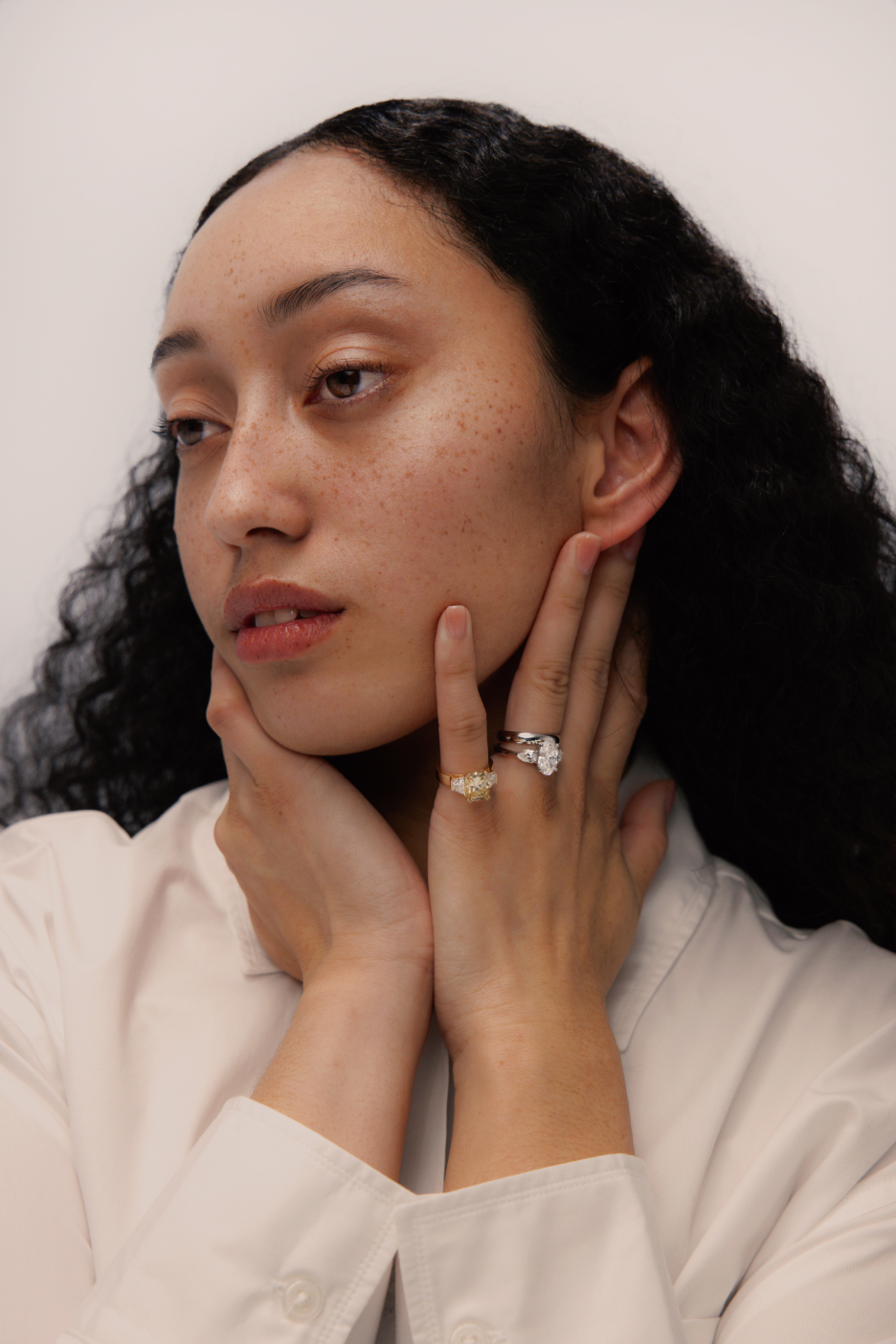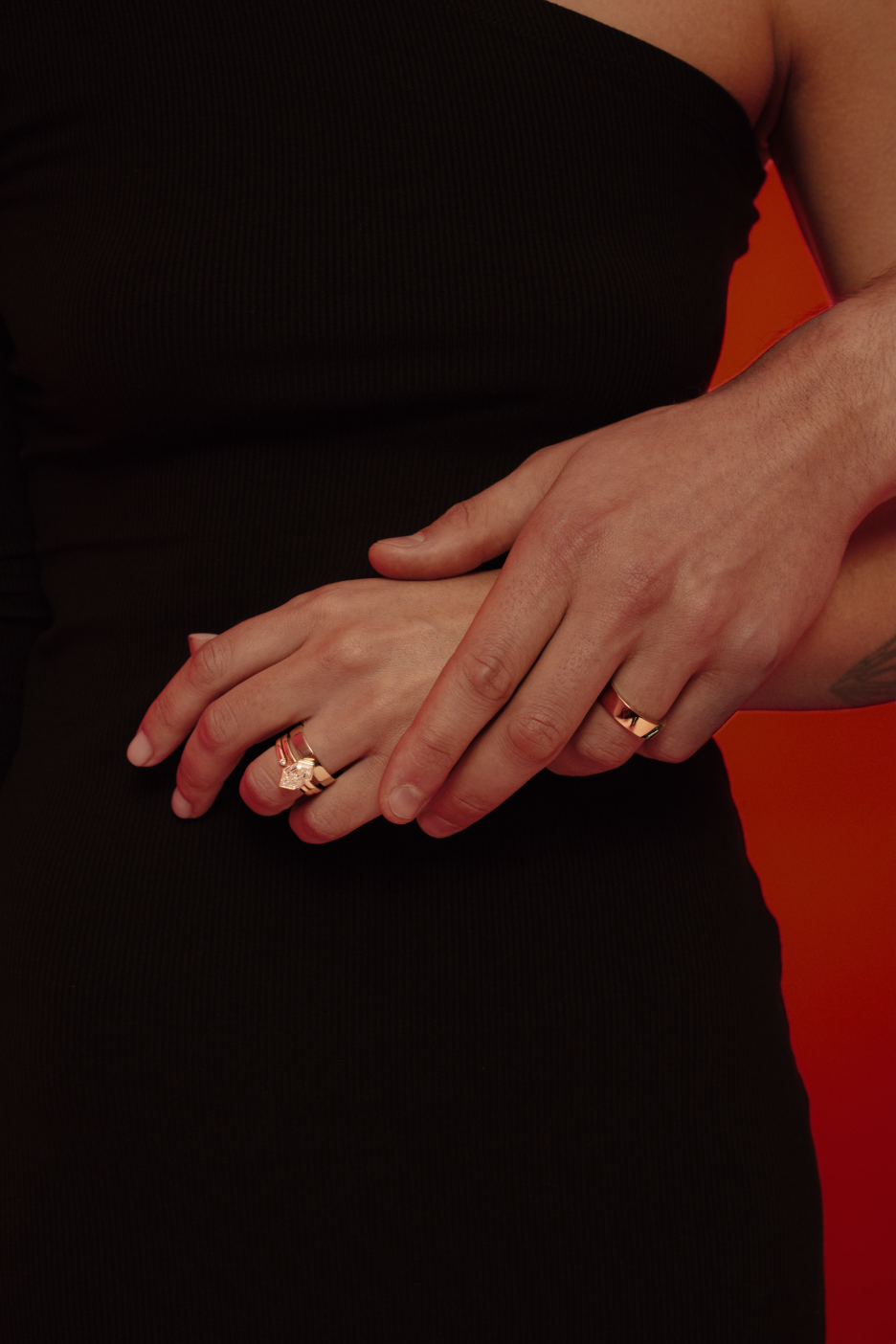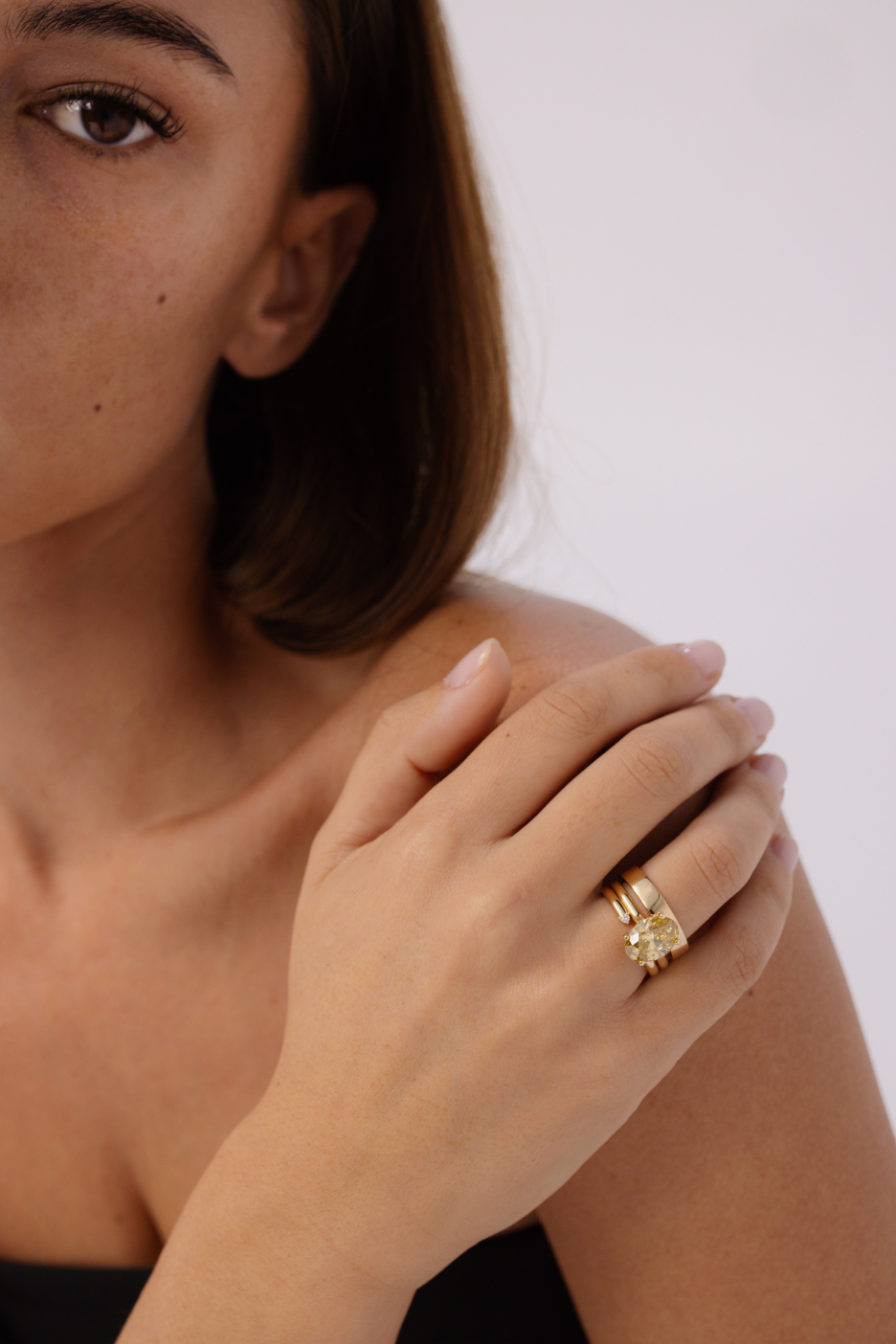Do Lab Grown Diamonds have re-sale value?

As lab grown diamonds continue to grow in popularity, we are often asked whether lab grown diamonds have resale value?
Before we answer this question, it is worth unpacking if diamonds have resale value in the first place. In this article, we will show you how jewellery is priced, and why no gemstone is a financial investment — not even mined diamonds.
Are lab grown diamonds a good investment?
Let’s set the record straight. Purchasing a diamond engagement ring to resell in the future, regardless of its origin, is not a wise investment. Not everything that is expensive needs to be an investment. And an engagement ring is one of those things because it represents love, commitment and a pathway to marriage.
Traditional jewellers often tell customers that lab grown diamonds are worthless. This isn’t true. Ironically, mined diamonds have a resell value similar to that of lab grown diamonds.
Why does this misconception exist? The biggest reason is the lack of knowledge on the resale value of mined diamonds. In most cases, it is practically impossible to sell a diamond for a similar price to that it was bought, unless it is exceedingly rare.
What if you want to re-sell it back to the jeweller that sold it to you? Think again. A jeweller can get a similar diamond (lab or mined) at a lower price from wholesalers who provide better payment terms. There is simply no reason for them to purchase your diamond at the consumer price in the first place.
How are diamonds priced?
Regardless of their origin, all diamonds (mined and lab grown) are valued according to a universally recognised standard, the Rapaport Price Method. This method is used to establish wholesale and retail pricing.
The "Four C's" of diamonds (carat, cut, clarity, and colour) are then used to determine the initial price. These measurements are then verified by either Gemological Institute of America (GIA), or the International Gemological Institute (IGI).
Afterwards, a retailer may factor the type of diamond (mined or lab grown) is factored into the final price. Larger jewellers (e.g. Tiffany or Michael Hill) have high markups due to their larger retail presence (rent doesn’t come cheap especially, in New Zealand). They also have lots of salespeople who are often competing for commission.
The mined diamond resale market
Unfortunately, over the last 50 years, mined-diamond jewellers have leveraged the idea that diamonds are rare to attract customers over any other gemstone. Ethical much?
When customers are marketed that their diamonds are more than simply a personal treasure, they are encouraged to believe that their purchase may be resold for a sum equal to or higher than they initially paid for it.
What people may not realise is as soon as they purchase a mined diamond, it loses 70% of the purchase price. So if you bought a $10,000 mined-diamond ring; it is only worth $3000.
The idea is you are effectively purchasing an heirloom that will be passed down through generations. Most people will argue that the price is worth it. And each to their own. But in an era when couples are becoming increasingly aware of, and interested in products that align with their values, you can be confident that they will appreciate the fact that a lab-grown diamond has had a positive impact on the world. They can be proud to wear it, especially one from Four Words where our diamonds are climate positive.
Are lab grown diamonds crashing the diamond market?
It is true that lab grown diamonds are a fast-growing segment compared to the entire diamond market. But it is not true that lab grown diamonds are crashing the diamond market. Why? The market is very small. Many people are not aware of lab grown diamonds. So it is a misconception that lab diamonds are accessible and crashing the market with their presence.
Are lab grown diamonds valuable?
Lab grown diamonds cost up to 30% less than mined diamonds, not because they are of inferior quality, but because the supply chain is much shorter.
According to Statista, the price of the highest quality one-carat diamond has been increasing over time. But does this represent a good investment? Not really. We cannot assume that the price of diamonds will rise. If a new mine is found, or lab grown diamonds continue to grow in their popularity, the price can come down quite quickly.
Is the value of diamonds decreasing or increasing over time?
It is impossible to tell. While the prices of wholesale diamonds fluctuate, retail diamonds will always be lower; by about 70%. Wholesale prices fluctuate on a number of factors such as advertising or the number of competitors in the market and in the supply chain.
Diamond prices soared in the years immediately after the Great Recession before starting to decline slowly from the beginning of 2012. And different diamond qualities have different prices. For example, a one carat diamond can be worth just a hundred dollars to up to $30,000.
The common myth that diamonds are a secure and rewarding financial investment was started by De Beers. You can read all about their intentional marketing strategies here. But much like other precious metals, luxury timepieces and other high-end commditities their values are not certain.
Diamonds are still an investment in your future. It is an investment into your partner — a demonstration of your love; and a moment that you will cherish.
So why don’t traditional jewellers sell lab grown diamonds?
Most mined diamond dealers are deeply established in the traditional techniques of selling diamonds and are unwilling to upset the apple cart by giving plainly advantageous prices associated with lab grown diamonds.
Offering lab grown diamonds alongside mined diamonds would most likely encourage buyers to choose the former, causing shops to lose sales of mined diamonds in their inventory — where they make the most money. When customers are informed of the numerous advantages of lab grown diamonds, and the ethical headaches that mined diamonds bring, the decision to acquire and resell diamonds will become more obvious.
If you still want to sell your diamond, what do you need to know?
If you do decide to sell your diamond one day here are the things you need to know:
-
Double-check that you’re the actual owner. Why? There are many horror stories of ex-partners wanting their engagement ring back and this can create an awkward conversation, especially if it has already been sold.
-
Check you have your grading report (e.g. from IGI, GIA, GCAL or AGS). To guarantee that the ring was not stolen, most shops that acquire diamonds from consumers want to see a grading report from an organization such as the IGI, GIA, GCAL, or AGS and evidence of purchase.
-
Check you have existing documentation. If you don't possess any of these items, you should contact the jeweler you bought your engagement ring from. You may need to have a new certificate created with the grading lab or a new receipt printed by the store that sold you the item.
-
Are you certain? Most diamond transactions are swift. If you’re not certain you want to sell the diamond then wait. Most offers made have a short expiry date and you may lose the interest of your selling prospects.
Where To From Here?
The truth is regardless of whether you re-sell a lab grown or mined diamond, you will always get less than what you paid for it. But with a lab grown diamond you get a higher quality diamond, a sustainable purchase, clear ethical supply chain all while paying a lower price.
Whatever you do, please don’t buy an engagement ring for the purpose of selling it later. Be pragmatic about your decision-making about an engagement ring. Work closely with a jeweller on creating something that both you and your partner will cherish for a lifetime. After all, diamonds should be appreciated for what they are — a beautiful and shiny stone that demonstrates your love. Not a financial investment.
